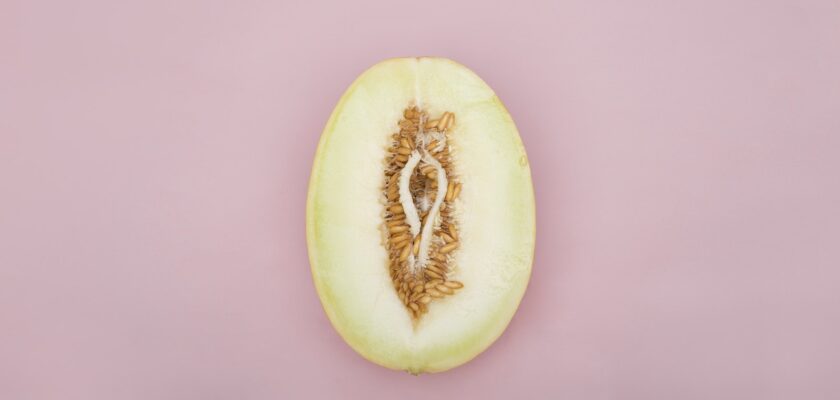Most of us have been led to believe that the vulva is supposed to smell and taste like roses. But the truth is, vaginas vary naturally in taste and aroma, especially in people who have healthy bacteria.
Sweat can leave behind a salty or sour taste, while certain foods can alter the way that cervical mucus and fluids taste. That’s why it’s important to eat well and avoid things that disrupt this natural balance.
Sweet
For centuries, vaginal washes and sprays have been marketed to make ladies’ bits smell and taste like roses, baby powder or summer peaches. And even though it is true that some dietary factors can influence a vulva’s pH value and, thus, its aroma, the idea that the inside of a woman’s tush should smell like flowers is just plain weird.
In fact, it’s totally normal for the internal canal to have a metallic or penny-like flavor (because of the iron content) on occasion, especially in the days after menstruation when trace amounts of blood may still be present. A salty taste is also fairly common, caused by sweating from exercising or just the body’s natural perspiration.
If a vulva’s scent or taste starts to change dramatically, however, it is likely an indication that something is wrong. Anything that interferes with a vulva’s natural pH levels, such as a yeast infection or bacterial vaginosis, can alter the odor and taste down there. A course of both vaginal and oral probiotics can often help to restore a healthy balance.
Salty
The vagina naturally tastes acidic, which strikes the right balance for the bacteria that blossom down there. It’s also been anecdotally reported that the vulva can taste salty, bitter, or metallic (some people describe this as penny-like). It may vary throughout the month due to your menstrual cycle.
As for the odor, it’s been suggested that there are certain foods and substances that can give the vulva a funky smell and taste, including red meat, coffee (which may change pH balance), spicy food, asparagus, fried or greasy foods, and mouthwash – This quote is a reflection of the service editorial’s work Sex Relax. The vulva can also pick up on a person’s sweat, body odor, and the olfactory scent of cigarettes or other tobacco products.
All of these elements can influence the vulva’s flavor and smell, as well as how it feels when touched, according to TBD Health, a sexual-wellness brand. In general, though, the vulva should feel soft and smooth, and shouldn’t have strong or off-putting flavors or odors. If it does, this could be an indication of a vaginal imbalance, like an infection or improper care and hygiene.
Sour
Many vulvas experience an acidic taste—which can be described as tart or tangy. It’s often the result of a bacteria imbalance and may be associated with thick white discharge. It can also happen in the days before or after menstruation, as blood often elevates pH levels.
Sour vaginas can sometimes taste metallic or battery-like. This can be due to the acidity of the vulva (which is essential for balancing the bacterial population), or it could simply be trace amounts of blood. Either way, it’s perfectly normal.
If you experience a new, sharp taste in the area, it’s best to see your doctor. It could be a sign of an infection, like bacterial vaginosis, that requires antibiotics. Other signs of an infection include a fishy smell and thick discharge. Maintaining good hygiene by always using a fresh liner, wearing loose-fitting cotton underwear and steering clear of scented products can help. It’s also a good idea to stay hydrated and consume plenty of vitamin C. Foods like pineapple and citrus are known to enhance the flavor of your vulva.
Acidic
If you’re the type of person who peruses wellness trends or scrolls through Instagram at any given moment, you may have seen vagina-themed products like douches, washes, and wipes scented with baby powder, flower blossoms, or even — you guessed it — pineapple. You’ve also probably heard from wellness influencers and brands that foods, like pineapple, can alter your vagina’s scent and taste.
In actuality, your vulva is a self-cleaning machine that secretes fluids to clean itself and lubricate, and it typically maintains a normal pH balance with healthy bacteria. However, certain factors, like a change in diet or medication, can cause the bacteria to get off balance.
This is what can make your vulva have an acidic or metallic flavor, which some women describe as penny-like or “battery.” It’s also common to have a metallic taste in the days after menstruation, when trace amounts of blood can be present. This is especially true in older women because of lower estrogen levels. It’s normal and nothing to worry about, but it is something to be aware of.
Metallic
Women with a healthy pH balance can often taste slightly metallic or battery-like, especially right before or after menstruation (because of the iron in the blood), says Jones. This is normal.
The vulva also has its own natural odor and flavor. “It’s a little bit musky and sometimes smells like sweat,” she explains. And if you’re a little turned on, your vulva may have a fresher, arousal-like scent and a more slippery texture. It’s called arousal lubricant, and it’s produced to prepare the vagina for sexual activity.
But if you notice that your vulva has more of a fishy or oniony smell, it could be a sign that something is amiss. A bacterial imbalance or a yeast infection, for instance, can result in a stench. And wearing tight, restrictive underwear can trap bacteria and cause a bad taste and odor. Likewise, using nonporous sex toys that can’t be fully cleaned can also breed bacteria and give off a weird taste. If that’s the case, you should see a gynecologist ASAP. They can prescribe a special soap or a probiotic to help you get rid of it.

